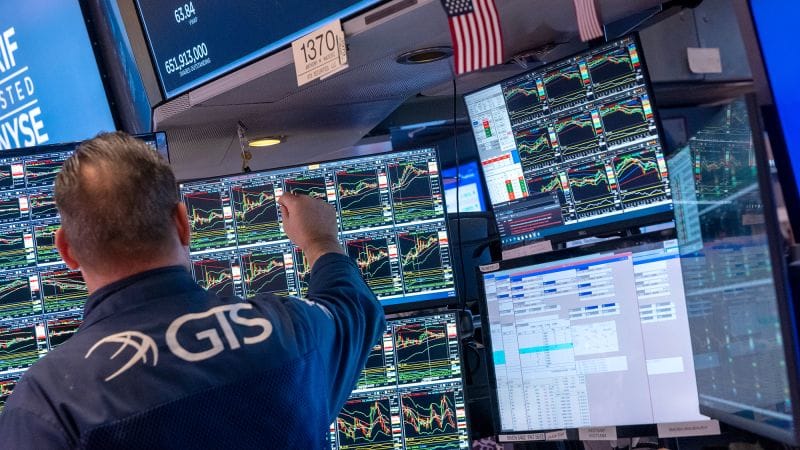After three straight days of sharp declines, the US stock market finally saw signs of recovery. On Tuesday, Wall Street responded with optimism, even as concerns over tariffs and global trade continued to weigh heavily on sentiment.
The Dow Jones Industrial Average soared 1,360 points, rising by 3.6%. The S&P 500 jumped 3.4%, and the tech-focused Nasdaq Composite climbed 3.76%. This marked the first solid rebound after days of intense market selling.
Recently, investors have feared that President Trump’s escalating tariff policies could push the US and global economies into recession. However, the sudden dip in stock valuations has led many to view this as a buying opportunity.
The S&P 500’s price-to-earnings ratio fell below 17 on Monday—a level considered historically low. For some traders, that signaled potential bargains in an otherwise volatile market.
According to Keith Lerner from Truist, the rebound is likely a technical correction. “This is a very normal action and very technical in nature after a shock period,” he explained. Lerner emphasized that markets don’t move in straight lines, especially after major drops.
He also highlighted the role of investor psychology. During uncertain periods, even minor updates can trigger exaggerated market reactions—both positive and negative. This explains why a false report on a possible tariff pause briefly boosted stocks, even though the White House quickly denied it.
Michael Block from Third Seven Capital added, “Even though that proved to be all smoke, traders are now poised for the fire – that is, real news.”
Despite the rebound, the outlook remains tense. Over the weekend, the US introduced sweeping 10% tariffs on nearly all imported goods. New rounds of tariffs, some as high as 70%, could hit key US trading partners, especially China.
President Trump has also threatened an additional 50% tariff on Chinese goods if the country doesn’t reduce its retaliatory measures. In response, China’s Commerce Ministry vowed to “fight to the end,” showing no signs of backing down.
This growing standoff has already led to the cancellation of strategic deals—such as a proposed US takeover of key ports near the Panama Canal and the TikTok acquisition. The tension continues to cast a shadow over both economies.
Despite risks, optimism spread globally. Japan’s Nikkei surged 6%, Australia’s ASX 200 rose 2.3%, and Hong Kong’s Hang Seng recovered 1.5% after a record 13% drop the day before. In Europe, France’s CAC, Germany’s DAX, and the STOXX 600 all gained over 2%.
Still, Wall Street analysts warn that a prolonged trade war could trigger a global recession. JPMorgan Chase and Goldman Sachs have both issued recent statements echoing that concern.
Even though some officials—like Trump’s trade adviser Peter Navarro—remain bullish, many business leaders, including Jamie Dimon and Elon Musk, caution that tariffs could lead to higher prices and weaker economic growth.
For now, investors are watching closely, hoping this rebound is more than a brief pause in a volatile market.

